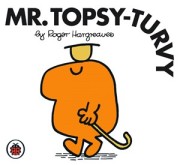This week has been an interesting, if slightly stressful one (though I
guess you already knew that, if you read Tuesday's post!) The
list of lecturers-who've-had-to-shove-the-Kleenex-my-way is irritatingly
gathering numbers, but I do have a better sense of the direction I need to
go in next (not to mention confirmation of the fantastic group of fellow
MA and PhD students that I have around me, keeping me sane. They know who they are, and I'm
incredibly grateful to them).
 |
| Rehearsals at the British Library |
Tears and tea-times aside, I came down to London yesterday after going to some guest talks in the department about changes in modal verb use in English and fronting in Germanic. I come down to London to meet up with the German Doctor, but as he's coming across from Salisbury and hospital hours are unpredictable, I get to London early and try to make the most of it. That's how I ended up at the
British Library, having, for the first time, pre-ordered a very useful book to London from Boston Spa, which has also got me thinking in a very productive direction. Then, when I left the Reading Rooms, I was greeted by the sound of an a capella choir chanting medieval music, which I think was to promote the
Royal Manuscript exhibition that's on at the BL at the moment, and which I am going to today with the German Doctor - very excited about that.
On these Fridays in London, I usually try to meet up with lovely Lauren, who I met in York, but is now toiling as a publishing assistant here in London. However, she wasn't available, so I continued my tour of Theatre Seats in London with Terrible Views. I started this tour three weeks ago, with an impromptu visit to see
Noises Off! at the
Old Vic. For £12 I was sat behind a pillar, but still had a whale of a time watching
Celia Imrie strut her stuff in an otherwise sold out show. This week, I decided to try my luck at the
Royal Opera House. For £9, I was sat right in the top row of the amphitheatre (Upper Slips Left BB26) and greatly enjoyed the 66% of
Cosi fan tutte that that seat afforded me. I say 66%, because you can see the kind of view I had in this picture here:
 |
| The Royal Opera House from the Gods. But for £9, who's complaining?! |
I had a whale of a time though; the music was exquisite, the story is very funny (if seriously misogynistic) and was portrayed in a superbly camp manner by some incredible singers. There was a twist though; the singer playing Don Alfonso was taken ill at very late notice, so late that they couldn't even get a singer in from Paris (as you do, apparently). So, a member of the cast of
Le Nozze di Figaro starting tonight sang Don Alfonso from the stage apron and the
Assistant Director of Opera provided his body! Fabulous fun (especially when Don Alfonso sings "I'm not a bad actor" to the wooden gestures of a non-actor...) but it didn't spoil the show in the slightest.
Anyway, back to work. Here's the week's reading. At some point I'll start leaving annotations/thoughts/actually useful information alongside the references, just to prove that I have actually read this stuff...!
L1 Syntax
- de Cat, C. (2005). French subject clitics are not agreement markers. Lingua, 115, 1195-1219.
Topics in Syntax
- Hong, S. and H. Lasnik. (2010). A note on 'Raising to Object' in small clauses and full clauses. Journal of East Asian Linguistics, 19, 275-289.
- Postal, P. and G.K. Pullum. (1988). Expletive noun phrases in subcategorized positions. Linguistic Inquiry, 19(4), 635-670.
Advanced Topics in Syntax and Semantics (UG)
- Schlenker, P. (2005). Non-redundancy: towards a semantic reinterpretation of binding theory. Natural Language Semantics, 13, 1-92.
Dissertation reading
- Schmitz, K. (2006). Indirect objects and dative case in monolingual German and bilingual German-Romance language acquisition. In: D. Hole, A. Meinunger and W. Abrahams. Datives and other cases: between argument structure and event structure. Amsterdam: John Benjamins, pp. 239-268.








